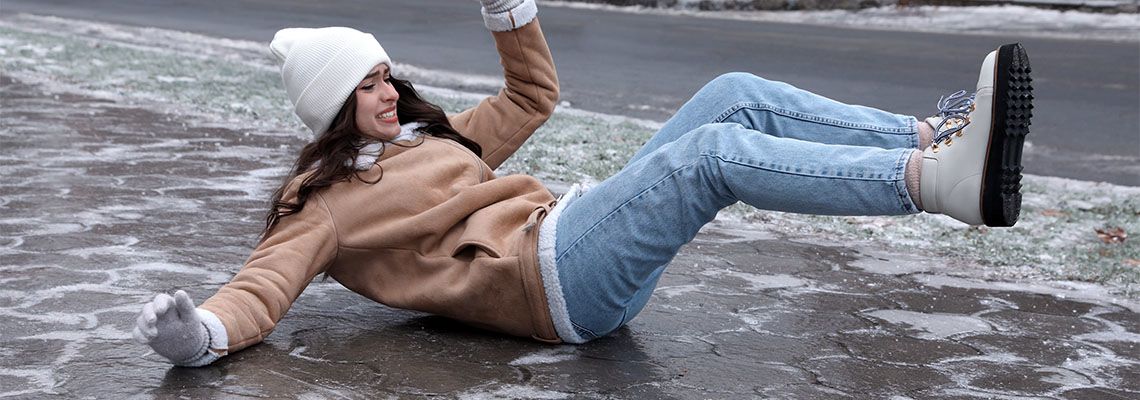Through It All Reach Out Today

Who Is Responsible for Maintenance in a Slip and Fall on a Public Sidewalk?
Slip and fall accidents on public sidewalks can lead to painful injuries, unexpected medical bills, and a whirlwind of questions about legal accountability. Many victims are unsure where to turn after being injured, which is why working with a seasoned attorney can bring clarity and reduce the stress of dealing with a legal case.
If you’re wondering where to start, reach out to Denning Law Firm, LLC to discuss how we can assist you. Led by Attorney William Denning and his daughter Paeten, our family-operated firm combines dedication and skill to advocate for your rights in slip and fall cases.
With extensive experience handling personal injury claims across Missouri and Kansas, we know what it takes to seek justice when negligence causes harm. Our firm serves residents throughout Kansas City, Missouri, as well as Kansas City and Overland Park, Kansas.
Who Is Responsible for Sidewalk Maintenance?
Responsibility for sidewalk maintenance often depends on local laws, regulations, and the specific circumstances leading to the accident. Factors such as weather damage, tree roots, and improper construction can contribute to hazardous conditions.
But who is legally at fault? Determining liability can involve property owners, the city or municipality, or even third-party contractors tasked with repairs or maintenance. Each case differs based on evidence, eyewitness accounts, and local legislation.
Missouri Sidewalk Laws and Liability
Missouri has specific regulations regarding sidewalk responsibilities, although these vary between municipalities. Generally, property owners whose land borders public sidewalks are expected to maintain these areas. This responsibility might include:
Keeping sidewalks free of debris
Repairing structural damage like cracks or uneven sections
Removing hazards such as ice or snow within a reasonable time frame
Establishing responsibility boils down to negligence. Did the liable party know of the hazard? Were they given adequate time to repair it, but failed to act? These questions are critical in building a strong claim. For example, in Kansas City, Missouri, adjacent property owners are required to remove snow and ice under city ordinances.
Failing to meet these requirements could lead to accidents, making the property owner liable for any resulting injuries. However, if a sidewalk deteriorates due to improper municipal maintenance, the city itself could be held responsible.
Comparative Fault in Missouri
Missouri courts apply a pure comparative fault system for personal injury cases. If the injured party is partially responsible for the accident, for instance, by wearing inappropriate footwear or failing to heed marked warnings, their compensation may be reduced by their percentage of fault. An attorney can help determine whether this standard applies to your case and how it might impact your potential recovery.
Kansas Sidewalk Laws and Liability
Kansas law also holds adjacent property owners accountable for maintaining public sidewalks in a safe condition. Cities like Overland Park and Kansas City, Kansas, enforce local ordinances requiring timely snow and ice removal after winter storms. Prolonged neglect, whether it involves leaving debris, uneven pathways, or hazardous conditions, can often lead to a claim.
However, in contrast to Missouri, Kansas adheres to a modified comparative fault rule. This means you can only recover damages if you're found to be 49% or less at fault for your injuries. If you're equally or mostly to blame, you will not receive compensation. Due to this stricter standard, it's essential to present substantial evidence in support of your claim.
Governmental Immunity in Kansas
One unique aspect of Kansas laws involves governmental immunity, particularly when the city or state is responsible for sidewalk maintenance. While government agencies can sometimes be held accountable, they’re often protected from lawsuits under “sovereign immunity.”
However, exceptions exist, such as when negligence is extreme or when a municipality fails to meet its legal obligations. A knowledgeable legal team can help identify whether this immunity applies to your case and explore alternatives like pursuing a claim against contractors or other relevant parties.
Building a Strong Slip and Fall Case
Slip and fall claims require compelling evidence to prove negligence. Therefore, it's important to take specific steps that can help strengthen your claim. The primary steps you should take include:
Document the scene: Take photos or videos of the hazard as soon as possible. This can serve as critical evidence if repairs are made after your injury.
Seek medical attention: Timely medical documentation is essential for securing appropriate care and reinforcing your case by clearly connecting your injuries to the accident.
Gather witness testimony: If anyone saw the incident, obtain their contact information and a statement of what they saw. This could help solidify your claim during legal proceedings.
Understand local deadlines: Each state has statutes of limitations that dictate how long you have to file a lawsuit. For personal injury cases, the statute of limitations is typically five years in Missouri and two years in Kansas.
Slip and Fall Attorneys Serving Missouri and Kansas
When your rights are at stake, you can count on Attorney William Denning and his daughter Paeten to provide effective representation. Our father-daughter team takes each case personally, striving to achieve results by facing challenges head-on. We don’t shy away from the tough battles; make sure your voice is heard and your rights are protected.
At Denning Law Firm, LLC, we're prepared to serve as your trusted advocate throughout your case. If you’ve been injured in a slip and fall accident and need dedicated representation in Kansas City, Missouri, Kansas City, Kansas, or Overland Park, Kansas, reach out to us today for straightforward guidance.
